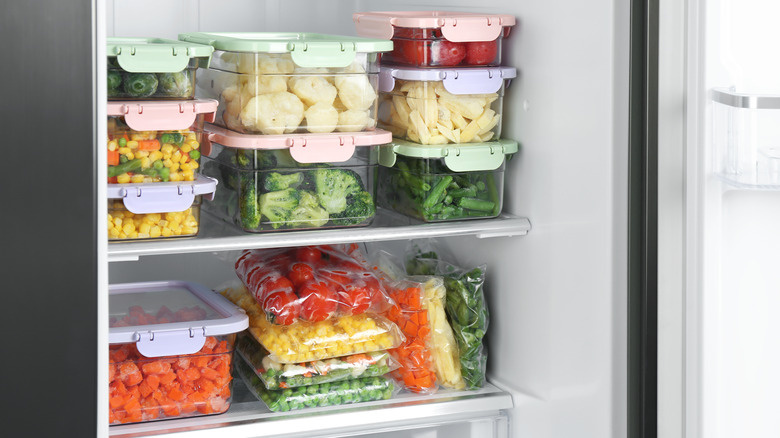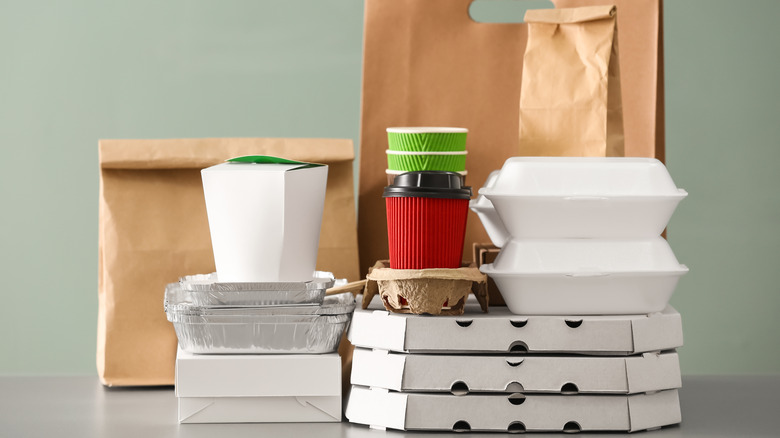Are Plastic Food Containers Safe?
Reusable food containers are a necessity for those who love leftovers. Whether you are trying to cut down on plastic for sustainability reasons or for personal health, food safety is definitely top of mind.
Plastic food containers have come under fire as a result of studies finding that the chemicals in plastic can be transported to the food and drinks we consume — especially when heated. Topping the list of harmful chemicals we are potentially exposed to via plastics are phthalates and bisphenol A (BPA), over concern of reproductive effects, as well as other health problems (via Harvard Health Publishing).
So are your plastic food containers safe? It depends on the type of plastic, as there are many different kinds, and the length of exposure. Experts say plastic container use typically results in low-dose chemical exposure, but can become more problematic over time.
"...Even though single exposures to a specific chemical are small, if they occur repeatedly over long periods of time, their effects may add up, leading to a variety of adverse health outcomes down the road," Dr. Russ Hauser, chair of the Harvard T.H. Chan Department of Environmental Health said in an article on the school's website. "Furthermore, and most importantly, we are exposed to many chemicals simultaneously (i.e., chemical mixtures) that may have additive adverse effects."
Finding safe food storage options
Hauser added there is a particularly higher risk for BPA and phthalates exposure in children and pregnant women. It is important to note that BPA has been banned in baby products like bottles, sippy cups and infant formula packaging — but it is still prevalent in other food and drink packaging (via Eat Right).
There are some tips to identify if your plastic container is safe. You can check the bottom of your food container for the resin identification number (listed as 1-7) to find what the plastic is made of. A general rule of thumb to follow is the recommendation from the American Academy of Pediatrics, which states to avoid plastic containers with codes 3, 6 and 7. Plastics with the code "7" in particular contain BPA, according to Eat Right.
Although some plastic containers are designated as microwave-safe by the Food and Drug Administration (via Harvard Health Publishing), it may be best to use plastic containers for cold storage only. Glass or stainless steel containers are good alternatives, as well as BPA-free products


